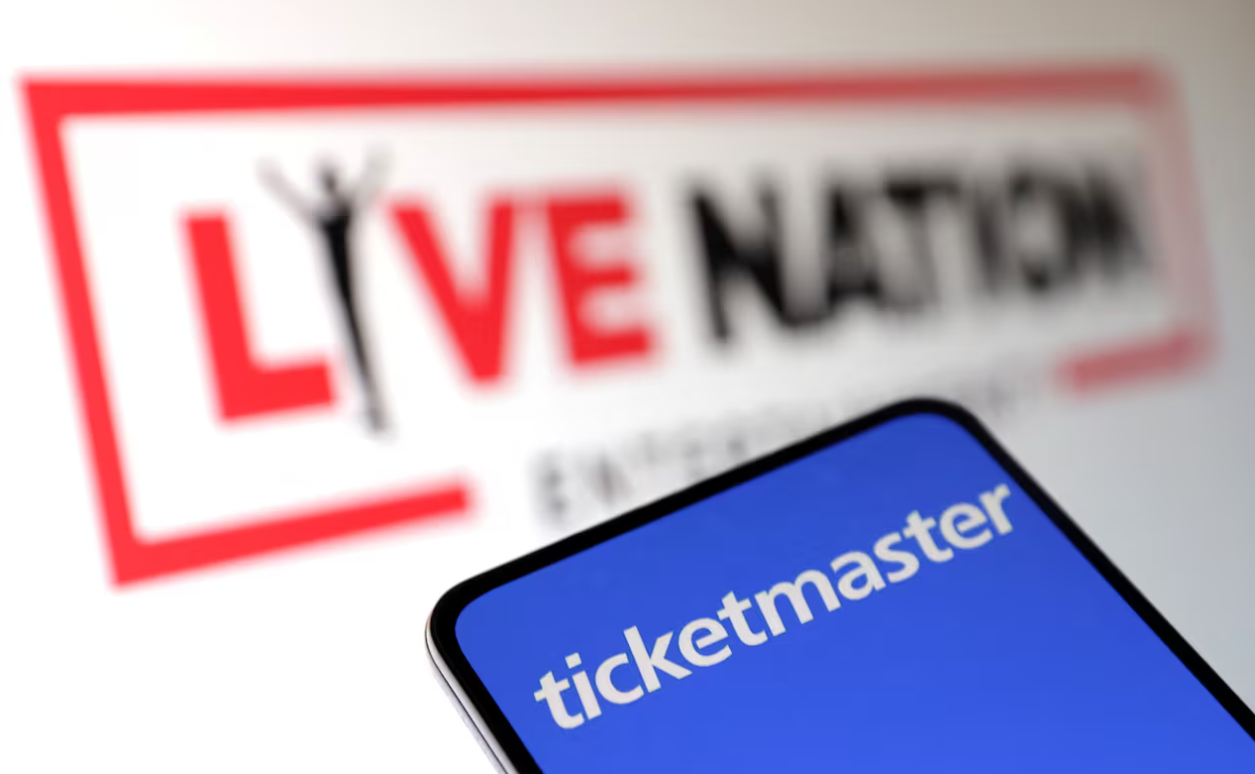Live Nation Entertainment, the multinational entertainment giant, recently confirmed that its subsidiary, Ticketmaster, suffered a significant data breach. The unfortunate incident led to the theft of personal customer data, raising concerns about the safety and privacy of millions of its users worldwide. The incident was initially reported by risk intelligence company RiskIQ, who identified a malicious software on Ticketmaster’s international websites that was reportedly diverting customers’ payment data to an unknown third party. The stolen data includes names, addresses, email addresses, telephone numbers, payment details, and Ticketmaster login details.
The company took immediate action upon discovery of the breach, launching an internal investigation and engaging leading forensic experts to help understand the extent of the intrusion. In addition, they have reached out to affected customers, providing them with details of the breach and guidance on how to protect themselves from potential phishing attacks or identity theft.
This data breach has once again highlighted the vulnerability of online platforms, even those owned by global corporations. Cybersecurity continues to be a significant issue, with businesses of all sizes and across all sectors falling victim to these types of attacks. It is essential for companies to invest in robust security measures to safeguard their customers’ data and maintain trust.
The incident has also caused a ripple effect in the industry, with other online ticketing companies now reassessing their own security protocols to avoid a similar fate. The Ticketmaster data breach serves as a harsh reminder of the potential risks associated with online transactions. It underscores the need for businesses to take their customers’ data privacy seriously and employ stringent measures to protect against cyber threats.
Live Nation’s reputation has undoubtedly suffered a blow due to the breach. However, their swift response in investigating the incident and informing affected customers has demonstrated their commitment to resolving the issue. They have also reassured customers that the vulnerability has been addressed and that they are working tirelessly to strengthen their security systems.
In conclusion, the Ticketmaster data breach marks a crucial turning point in the ongoing narrative of cybercrime. The incident serves as a wake-up call for businesses to prioritize cybersecurity and invest in comprehensive security systems that can protect against such attacks. As customers, we must also be vigilant and proactive in protecting our personal information online. The unfortunate reality is that in the digital age, data breaches have become increasingly commonplace, and it is up to both businesses and consumers to safeguard against these threats.

Details of the Ticketmaster Data Breach: What We Know So Far
The Ticketmaster data breach, which transpired in 2018, has been a significant event in the realm of cybersecurity, shedding light on the need for enhanced data protection measures. The breach was orchestrated through a customer support product hosted by Inbenta Technologies, a third-party software company. The software was compromised by malicious software, allowing cybercriminals to gain unauthorized access to customer data. The information potentially accessed by these intruders included names, addresses, email addresses, phone numbers, payment details, and Ticketmaster login details.
The breach was discovered when Monzo Bank detected fraudulent transactions on customers’ cards, which were traced back to Ticketmaster. This prompted an investigation which revealed the breach. The specifics of the breach suggest that it was not a direct attack on Ticketmaster’s systems but rather an indirect assault via third-party software. The attack affected approximately 5% of Ticketmaster’s global customer base, predominantly customers in the UK.
Upon discovery of the breach, Ticketmaster took immediate action to address the situation. The compromised product was disabled across all websites, and customers believed to be affected were contacted. Ticketmaster offered these customers a free 12-month identity monitoring service with a leading provider to help manage the potential repercussions of the breach. The company also advised all customers to change their passwords.
In the aftermath of the breach, Ticketmaster faced criticism for their handling of the event. Some argue that the company did not act promptly enough upon discovering the breach and did not do enough to protect their customers’ data in the first place. The case has sparked discussions about the responsibility of companies to ensure the security of third-party software they utilize and the need for stricter cybersecurity measures to prevent such incidents in the future. The Ticketmaster data breach serves as a stark reminder of the potential vulnerabilities present even in large-scale, seemingly secure digital platforms.
Types of Personal Information Compromised in the Hack
Various types of personal information can be compromised in a hack, each carrying different implications for the victim. Among the most common are financial details, which include credit card numbers, bank account details, and online transaction records. Hackers can use this information to make unauthorized purchases, withdrawals, or even identity theft. Personal identification information such as full names, addresses, social security numbers, and birth dates are also highly susceptible. This data can be used to create fake IDs or accounts for fraudulent activities.
Health records are another type of sensitive information that can be compromised. Hackers can gain access to medical history, health insurance details, and prescriptions, which can be used for blackmail or to gain unauthorized access to prescription medications. In the realm of digital assets, email accounts and social media profiles can be hacked, leading to the spread of false information, cyberbullying, or even the theft of digital identities.
Even seemingly innocuous data like shopping preferences, browsing history, and location data can be valuable to hackers. This information can be used to create targeted phishing scams or to track an individual’s movements. While many of these breaches are often committed with the intent of financial gain, some hackers aim to disrupt lives or businesses, or even to make a statement. In conclusion, a wide array of personal information can be compromised in a hack, ranging from financial and identification details to digital assets and behavior patterns, each carrying its own set of risks and potential consequences.
Steps Live Nation is Taking to Address the Data Breach
In response to the data breach, Live Nation is taking several proactive measures to ensure the safety and security of its users’ information. Firstly, they have initiated a thorough investigation to identify the cause and extent of the breach, as well as to prevent future occurrences. They are working with leading cybersecurity firms who specialize in data breaches and are taking necessary steps to upgrade their information security infrastructure.
Additionally, Live Nation is taking steps to educate its employees on data security to prevent internal breaches. They are also in the process of enhancing their security protocols to ensure that their systems are not vulnerable to cyberattacks in the future. Meanwhile, to alleviate customer concerns, Live Nation is communicating transparently about the event, providing updates as they become available. They are also offering complimentary identity theft protection services to those impacted by the breach.
Furthermore, Live Nation is reviewing and enhancing its data protection policies to ensure they are in line with industry standards and best practices. As part of this, they are also working closely with external data security consultants to ensure that these protocols are robust and comprehensive. These actions taken by Live Nation demonstrate their commitment to data security and their efforts to regain the trust of their customers. The company recognizes the importance of protecting user data and is making every effort to ensure that their systems and practices meet the highest standards of data security.

How to Protect Yourself if Your Information Was Affected
If you discover that your personal data has been compromised, it’s crucial to take immediate action to minimize potential harm and protect yourself from further violations. First things first, change your passwords. This applies to all online accounts, but particularly those which have been impacted. Make sure your new passwords are strong and complex, with a mix of alphanumeric and special characters. Enabling two-factor authentication adds an extra layer of protection.
Next, monitor your financial transactions closely. Keep an eye out for any suspicious or unauthorized activity. If you notice anything unusual, contact your bank or credit card company immediately. They can assist you in disputing the charges and securing your accounts. Be sure to keep a record of all communications for future reference.
It’s also advisable to check your credit reports regularly. Many credit reporting agencies offer free reports annually. If you spot any unfamiliar or incorrect entries, report them promptly. Consider subscribing to a credit monitoring service. While there’s usually a fee, many companies offer these services for free to victims of data breaches.
Lastly, be vigilant about phishing attempts. Cybercriminals often exploit data breaches to trick victims into revealing further information. Never respond to unsolicited emails, texts, or calls asking for personal details. Always verify the source before clicking on any links or downloading attachments.
In the event of a large-scale data breach, the affected company usually provides guidance on what steps to take. Follow this advice closely. Additionally, you may want to consider getting identity theft protection. While it cannot prevent identity theft, it can help detect and resolve it quickly.Remember, the key to safeguarding your information is prevention and prompt action. Be proactive about your digital security and don’t hesitate to seek professional help if necessary.

Potential Implications for Ticketmaster Users and the Industry
The recent developments surrounding Ticketmaster could pose numerous implications for both its users and the larger event ticketing industry. For users, one key concern could be the potential misuse of their personal data. As Ticketmaster operates as a digital platform, it collects and stores the personal data of millions of users worldwide. Any changes in its management, policies, or security measures could expose users to privacy breaches or identity theft. This could erode public trust and confidence in the platform, pushing customers to seek alternative ticketing services.
On the industry level, Ticketmaster’s market dominance might be challenged due to these developments. Competitors could seize this opportunity to attract disillusioned customers and gain a larger market share. This could lead to a shift in the balance of power within the industry, with new leaders emerging and old ones losing ground.
Additionally, if Ticketmaster were to face severe consequences as a result of these issues, this could potentially trigger a chain reaction in the industry. Other ticketing platforms might be prompted to review and strengthen their own policies and security measures to avoid similar issues. Events might also start exploring alternative ticketing or entry methods, such as blockchain-based systems, to ensure greater security and transparency.
Lastly, the developments could lead to a call for stricter regulations in the ticketing industry to protect consumers. This could result in changes in how businesses operate, possibly leading to increased costs for companies but greater protection for consumers.
In conclusion, the developments surrounding Ticketmaster could have far-reaching implications, possibly reshaping the landscape of the event ticketing industry and changing the way consumers purchase tickets for events.
